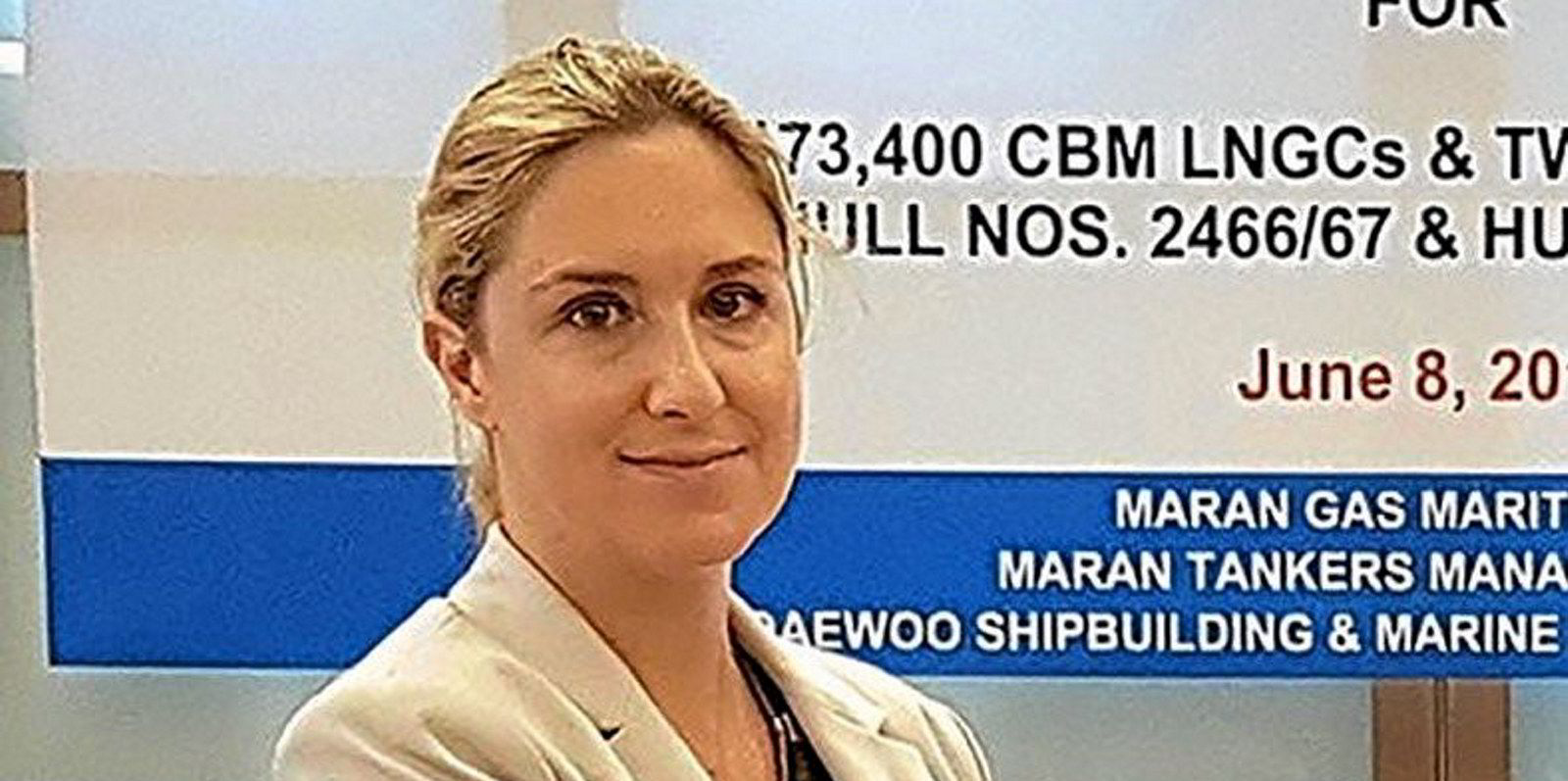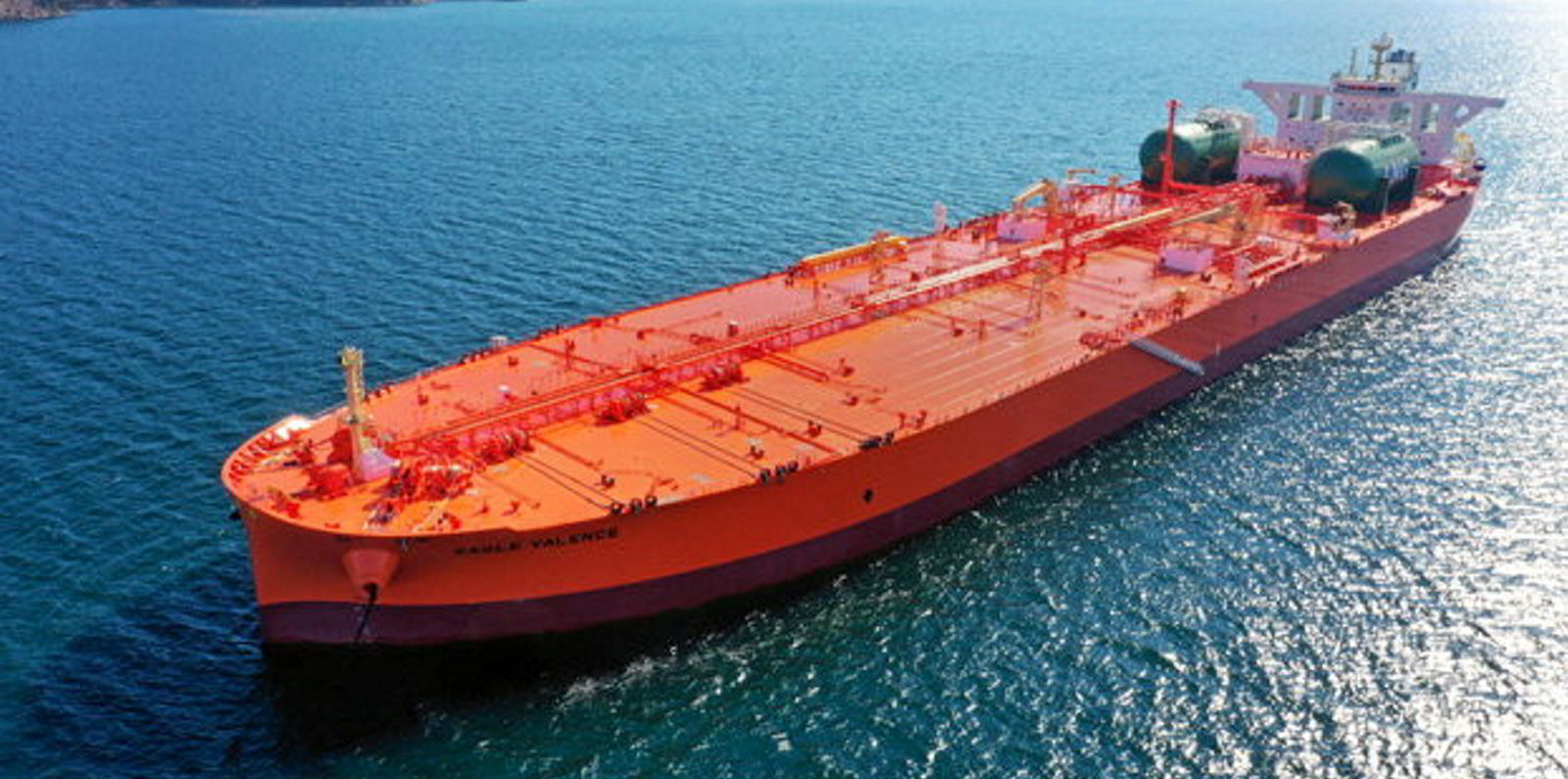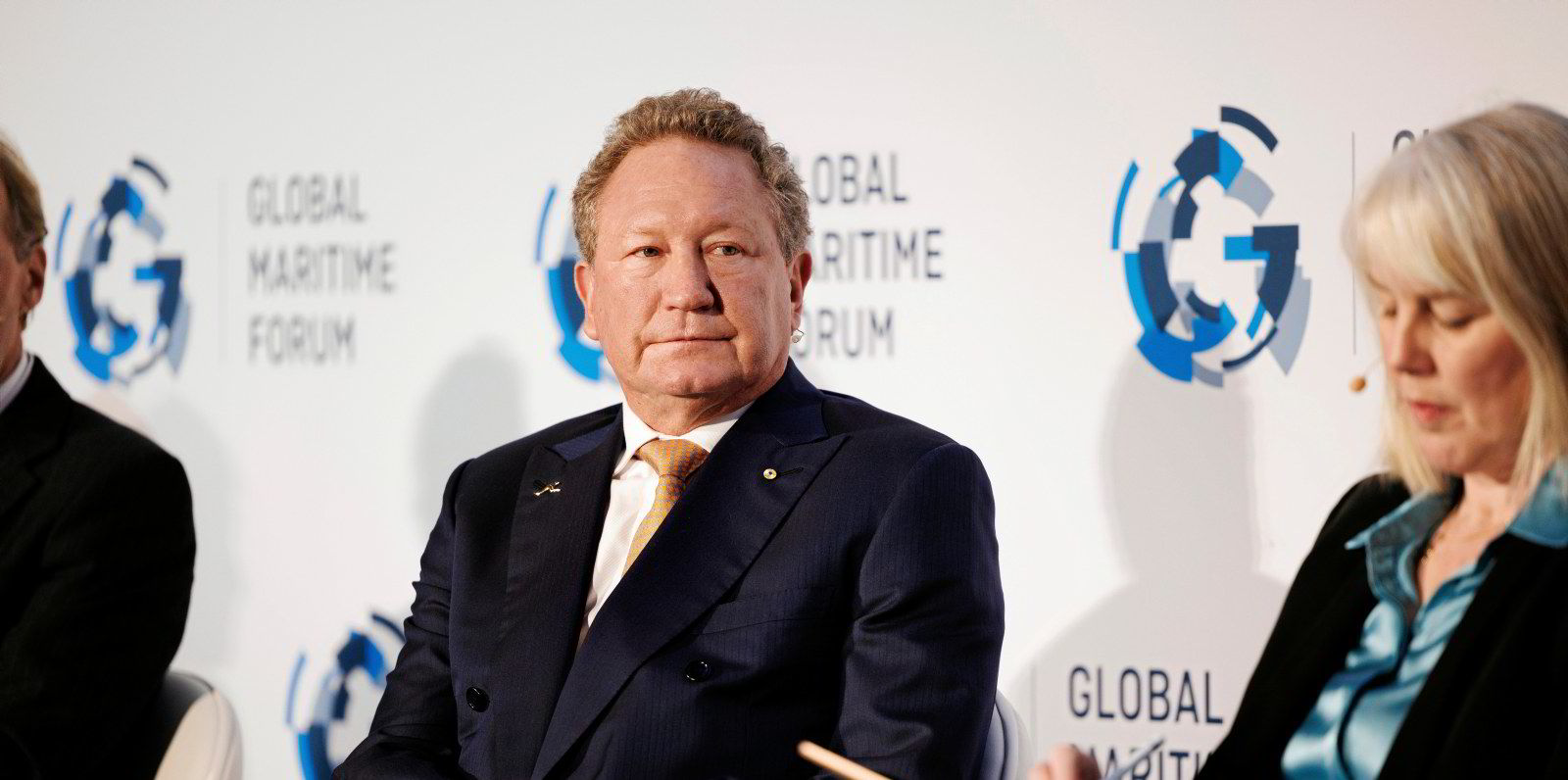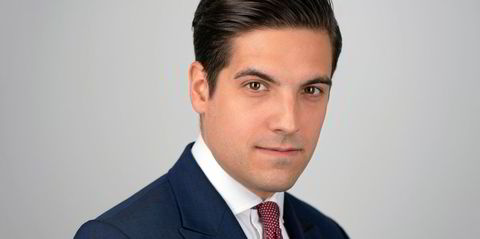Maria Angelicoussis does not believe her company will order any more conventionally fuelled vessels as it steps up decarbonisation efforts.
The Angelicoussis Group chief executive described cutting emissions as “probably our top priority”.
She said the Greek tanker, bulker and LNG carrier owner has already developed a stand-alone department called Green Ships to drive its decarbonisation agenda.
“This is of crucial importance, there’s a huge sense of urgency in our company,” she told TradeWinds editor-in-chief Julian Bray at the FT Global Commodities Summit.
“We have to design future ships with zero carbon.”
Angelicoussis explained that the group has a very accurate idea of how the current fleet is performing and spends “quite a bit of money” on energy-saving devices to optimise the fleet.
In 2020, the group ordered four 320,500-dwt dual-fuel VLCCs at Samsung Heavy Industries. These are due in 2023.
Angelicoussis told the summit that the vessels were contracted speculatively, adding: “We ordered four. We actually wanted eight, that was how strong our conviction in them was.
“And right now, rather than ordering conventional ships, which I don’t see us doing in the future, LNG is by far the best solution.”
She said the vessels, with optimised hulls and energy-saving devices, will cut emissions by at least 35%.
Price needs to come down
But high prices for low-carbon bunkers are making it tough for the industry, she argued: “The LNG price today is very high. We are living through extraordinary times, we are in the middle of a war.”
She believes this is “definitely” the time for collaborating on the issue.
“This is not a time to be adversarial, this is a time to work together.”
And Angelicoussis stressed the need to work with fuel producers to develop competitively priced fuels in the future.
“We are in general fuel-agnostic. LNG is the best option today, but in the future ammonia will be there — these will all have to be competitively priced,” she said.
A lack of clarity in global regulations on the issue is causing frustration.
“As shipowners, we need to take a very long-term view — 15, 20 years in advance in designing and building these future ships,” she said.
Angelicoussis argued that any carbon tax must be global. “We believe in a level playing field.”
She believes regional regulations make the picture complicated and cause difficulties in terms of enforcement.
And she is already looking at new trends in shipping.
“Our future will look very different in 10 years’ time. We are looking at CO2 carriers, ammonia carriers, possibly hydrogen,” she added.
Biofuels, carbon capture and storage, and methane capture are being studied to make current vessels more efficient — “There’s a lot going on.”
And charterers are a “huge and important” part of the decision-making process, “because ultimately they are the ones who will be choosing to fix our ships. My father always taught me to build strategic partnerships with first-class people.”







